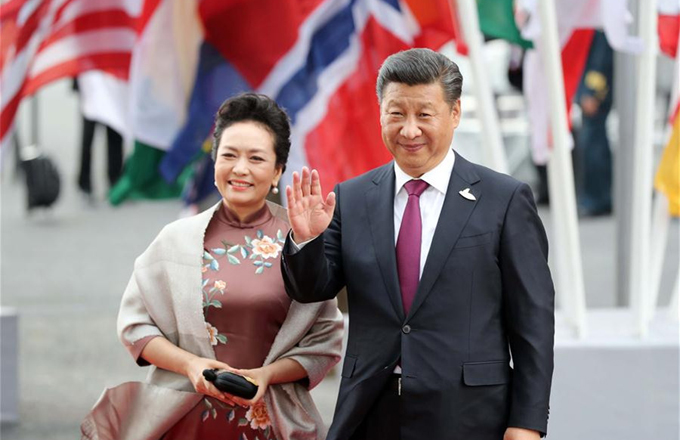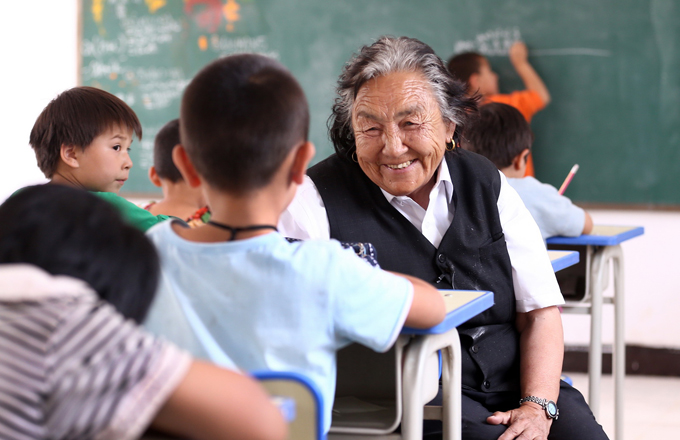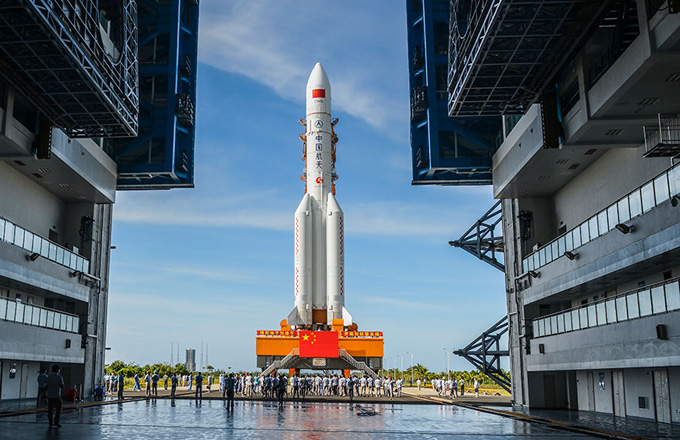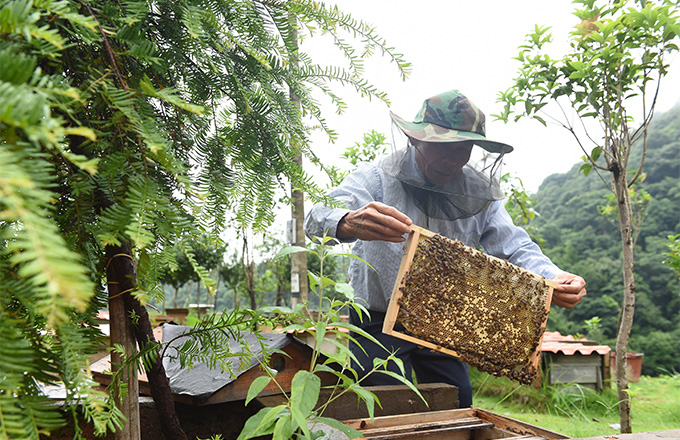Parental leave extended in 30 provinces
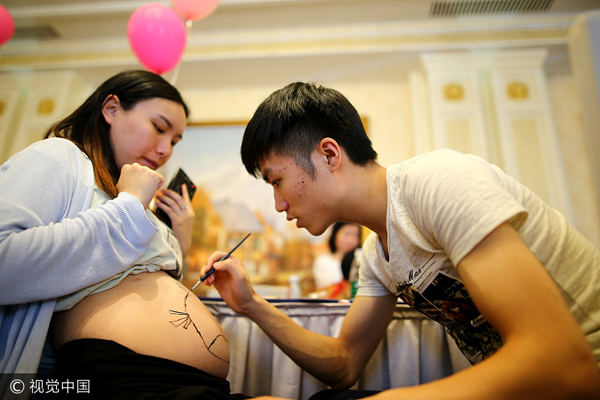 |
|
A father-to-be paints on the stomach of his pregnant wife. [Photo/VCG] |
Mothers in the Tibet autonomous region are set to enjoy the longest maternity leave in China, Beijing News reported.
The local authority has granted women one-year paid maternity leave, while Tibetan fathers are eligible for 30 day's paternity leave.
Another 29 provincial regions have extended maternity leave since the introduction of the two-child policy in January 1, 2016.
The extension was based on the revised Law on Population and Family Planning adopted last year. According to the law, all female employees who give birth are entitled to one to three months in additional maternity leave to the 98 days leave mandated.
Maternity leave in Hainan and Henan provinces has increased to 190 days, and women in Heilongjiang and Gansu provinces are expected to enjoy 180 days of leave. Female workers in Beijing, Shanghai and some other provincial regions are entitled to have 128 days off when giving birth.
Leave for fathers ranges from one week to a month in different regions.
Paternity leave in Tibet autonomous region, Gansu and Yunnan provinces is the longest, which allow 30 days off work for fathers, while fathers in Tianjin municipality and Shandong province have the shortest paternity leave of seven days.
Although maternity leave has been extended around China, some working women have difficulty accessing such benefits, according to Beijing News.
Maternity leaves increased to 138-158 days on average in all regions, with paternity leaves at 15-30 days, according to an inspection on implementation of the new family planning policy.
According to the National Health and Family Planning Commission, women over 35 years of age accounted for two thirds of all women eligible to have a second child. Some experts believe that extending maternity leave is beneficial for the older pregnant women who have increased risks when getting pregnant and giving birth.
Demographer He Yafu believes the government should offer subsidies to enterprises that hire female workers to alleviate the pressure exerted by female workers' childbearing.






